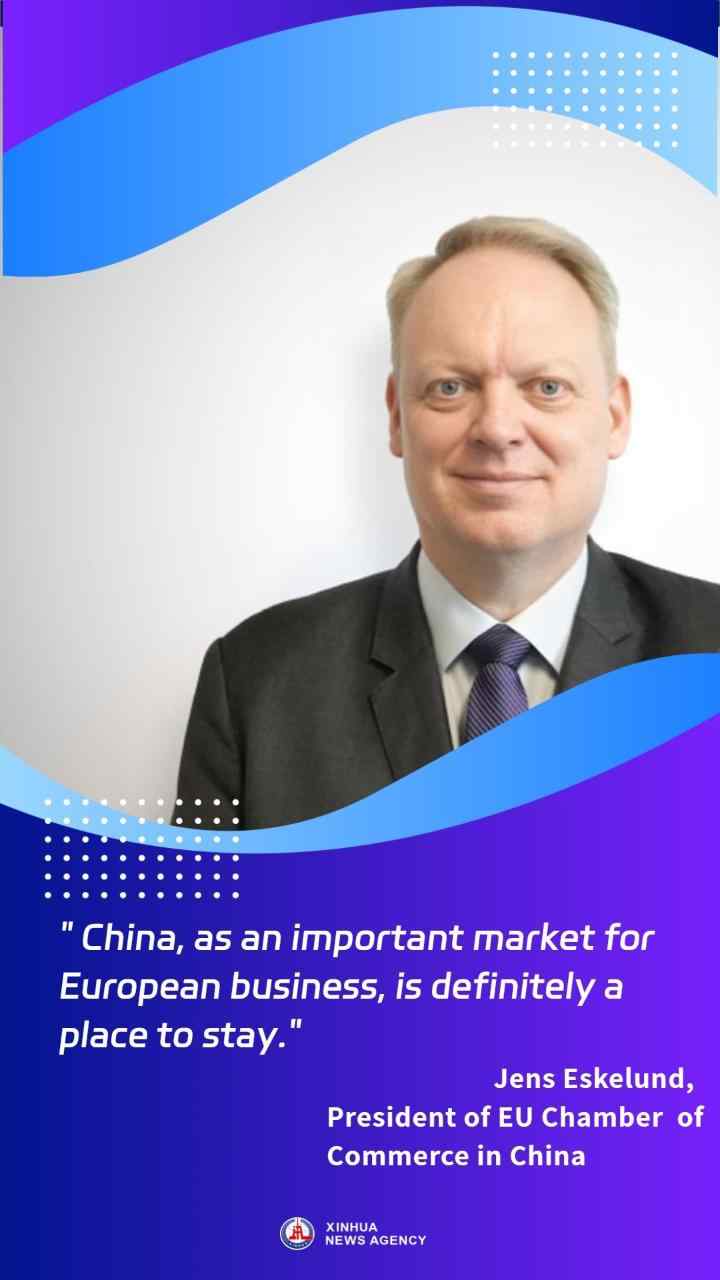European firms not leaving Chinese market: EU commerce chamber chief

by Xinhua writers Zhou Qianxian and Gao Jianfei
BEIJING, Dec. 27 (Xinhua) -- "European companies are not running for the exit. Instead, most of our member companies remain committed to the Chinese market," Jens Eskelund, president of the European Union Chamber of Commerce in China, told Xinhua in an exclusive interview.
Though slow global economic development, weak demand, and a volatile geopolitical environment have led some firms to consider diversifying supply chains, the relocation of activities outside of China remains a minor phenomenon, Eskelund said.
The Chinese market is stable, predictable, and reliable, he added.
"The country is an indispensable part of global value chains, so you can basically not have a significant global presence if you are not present in China," Eskelund said.
China, as an important market for European business, is definitely a place to stay, he added.
Noting that China has some unique advantages in attracting foreign businesses, he said the country is the world's second-largest economy with a huge market as well as significant scale and technological benefits.
In Eskelund's eyes, the Chinese market is competitive with high potential. "We used to say that China is a fitness center for European companies because you really need to work hard to compete with technologically improved Chinese companies and provide your best and latest technology to the market."
Chinese companies have a high capacity for innovation, working hard to develop new industries and become industry leaders, Eskelund said, adding that green technology is an area where China has very significant potential going forward.
Eskelund also noted that even though China's economic growth might be lower than before, most people expect a growth rate of around 5 percent this year, which is respectable compared with many other countries and will offer a lot of opportunities for many companies.
"Beyond this year, we will still see growth in China. But the growth would be different. It will not be the same kind of course that we have seen before because the Chinese economy is undergoing structural change."
Eskelund said that not everything will continue to go upwards at a steep incline forever, and it is natural that a very steep growth rate will moderate at some point in time.
Looking ahead, Eskelund hopes for more concrete and specific measures to create reciprocity in terms of market access, which will be a powerful signal to the international business community.


